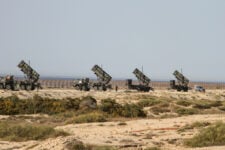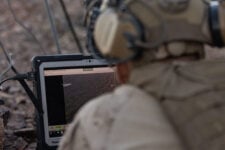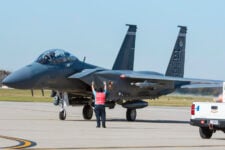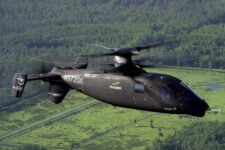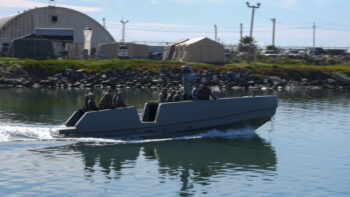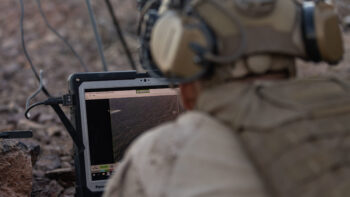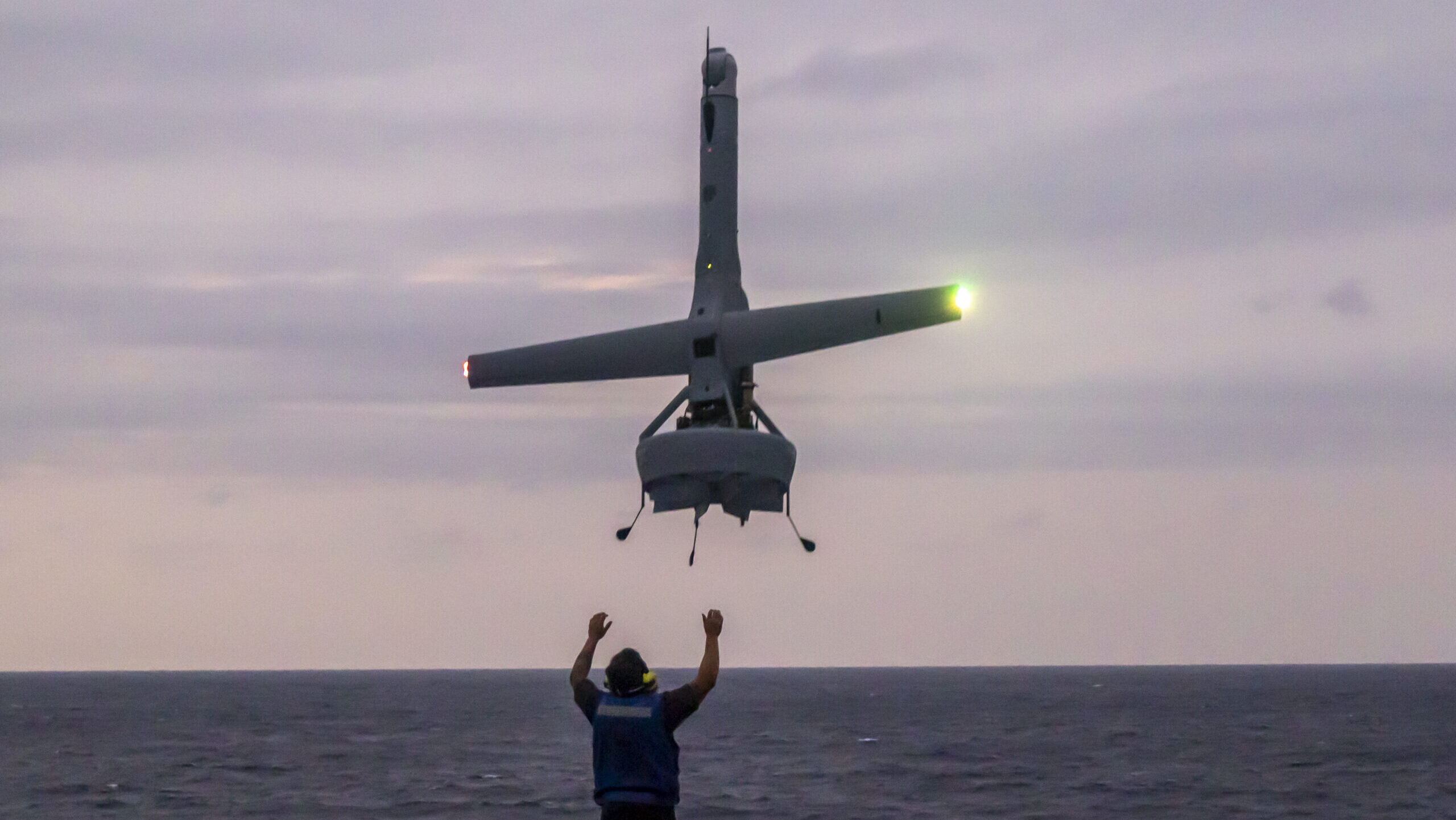
A civilian contractor embarked with the 31st Marine Expeditionary Unit, lands a V-BAT drone aboard the amphibious transport dock ship USS Green Bay (LPD-20) in the Philippine Sea, Feb. 2, 2023. (U.S. Marine Corps photo by Sgt. Andrew King)
DESTIN, Fla. — Defense tech startup Shield AI has established a presence Down Under with a deal to acquire a local Australian imagery tech firm, the company announced today.
Shield AI, headquartered in San Diego, said it has entered into a “definitive agreement” to acquire Sentient Vision Systems, an Aussie firm specializing in “passive, optical detection using wide area motion imagery” with AI-enabled sensors. The acquisition will go ahead pending closing and regulatory approval, Shield AI said.
“The companies will merge AI expertise and operational understanding to deliver superior intelligence surveillance and reconnaissance (ISR) capabilities for today’s rapidly changing defense and security environment,” Shield AI’s announcement says.
The companies already work together, having a announced a joint project in August to develop imagery tech. In today’s release, Shield AI President Brandon Tseng made it clear the acquisition — combining Shield AI’s artificial intelligence pilot, drones and Sentient’s imagery capabilities — is meant to help his firm to provide a solution for the US Department of Defense in its quest for “an all-seeing eye over tens of thousands of square miles, 24/7, without the need for GPS or communication links.”
RELATED: Shield AI, Boeing ink agreement to push AI, autonomous development
Sentient CEO Mark Palmer linked the acquisition to the tech development side of the AUKUS security arrangement known as Pillar II, saying Shield AI has the “technological expertise and maturity” to “deliver” on AUKUS objectives.
Shield AI says its AI pilot has flown from converted fighters or drones, including the company’s V-Bat drone, acquired when the company purchased a company called Martin UAV in 2021. For the DoD and other customers, the company has been pushing its Hivemind AI pilot, which it says can operate in electronic warfare and denied communications environments and control several aircraft at once.
Hivemind is “the Android operating system with the aircraft manufacturer,” Tseng told Breaking Defense in October. “So the same way Android works with Nokia, Samsung … we want to work with every OEM [original equipment manufacturer], every aircraft.”
Beyond AUKUS, the Australian military has expressed keen interest in intelligent, unmanned systems, especially as it pursues a “loyal wingman”-style program analogous to the US Air Force’s collaborate combat aircraft.

